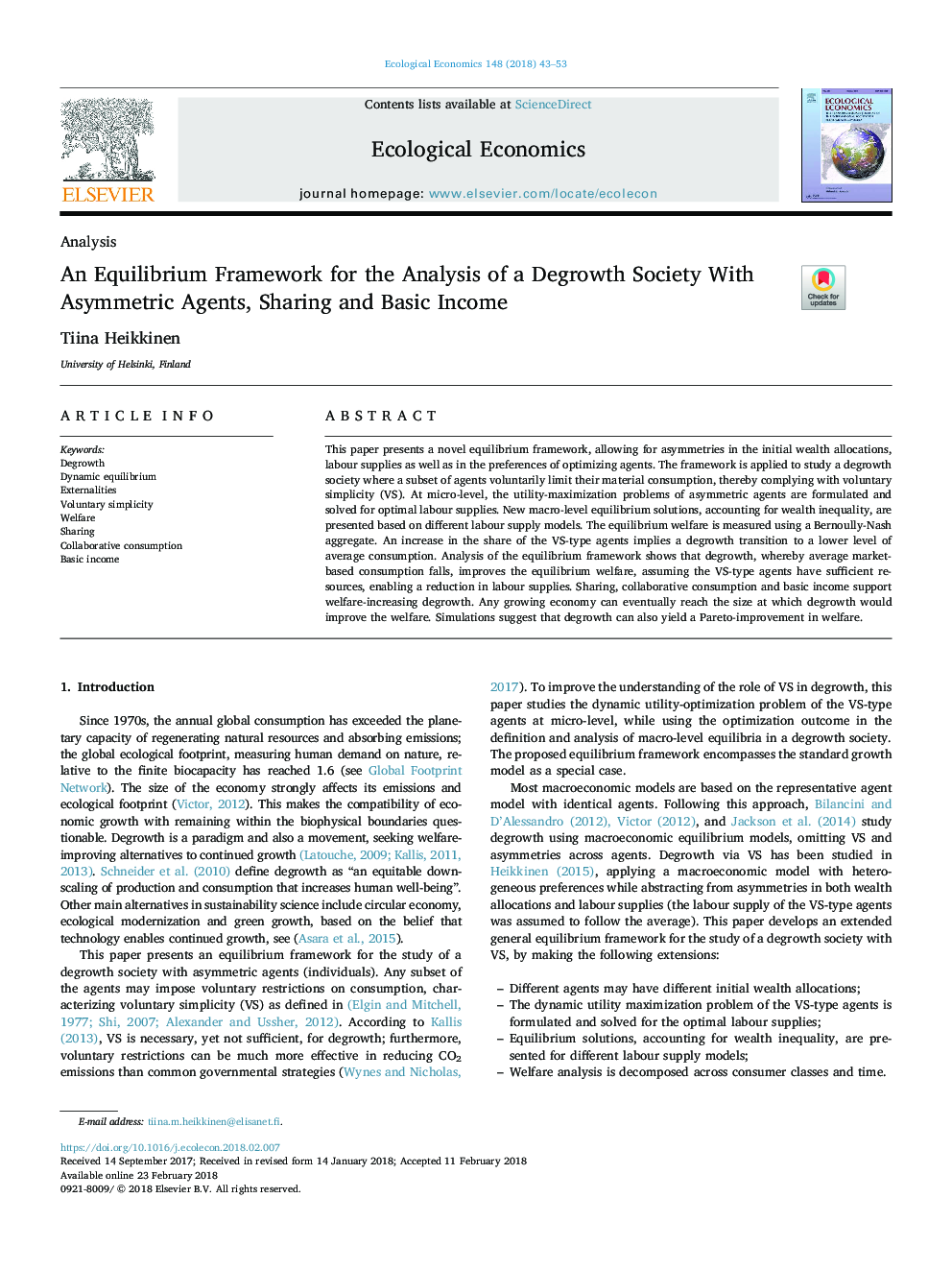| Article ID | Journal | Published Year | Pages | File Type |
|---|---|---|---|---|
| 7344110 | Ecological Economics | 2018 | 11 Pages |
Abstract
This paper presents a novel equilibrium framework, allowing for asymmetries in the initial wealth allocations, labour supplies as well as in the preferences of optimizing agents. The framework is applied to study a degrowth society where a subset of agents voluntarily limit their material consumption, thereby complying with voluntary simplicity (VS). At micro-level, the utility-maximization problems of asymmetric agents are formulated and solved for optimal labour supplies. New macro-level equilibrium solutions, accounting for wealth inequality, are presented based on different labour supply models. The equilibrium welfare is measured using a Bernoully-Nash aggregate. An increase in the share of the VS-type agents implies a degrowth transition to a lower level of average consumption. Analysis of the equilibrium framework shows that degrowth, whereby average market-based consumption falls, improves the equilibrium welfare, assuming the VS-type agents have sufficient resources, enabling a reduction in labour supplies. Sharing, collaborative consumption and basic income support welfare-increasing degrowth. Any growing economy can eventually reach the size at which degrowth would improve the welfare. Simulations suggest that degrowth can also yield a Pareto-improvement in welfare.
Keywords
Related Topics
Life Sciences
Agricultural and Biological Sciences
Ecology, Evolution, Behavior and Systematics
Authors
Tiina Heikkinen,
